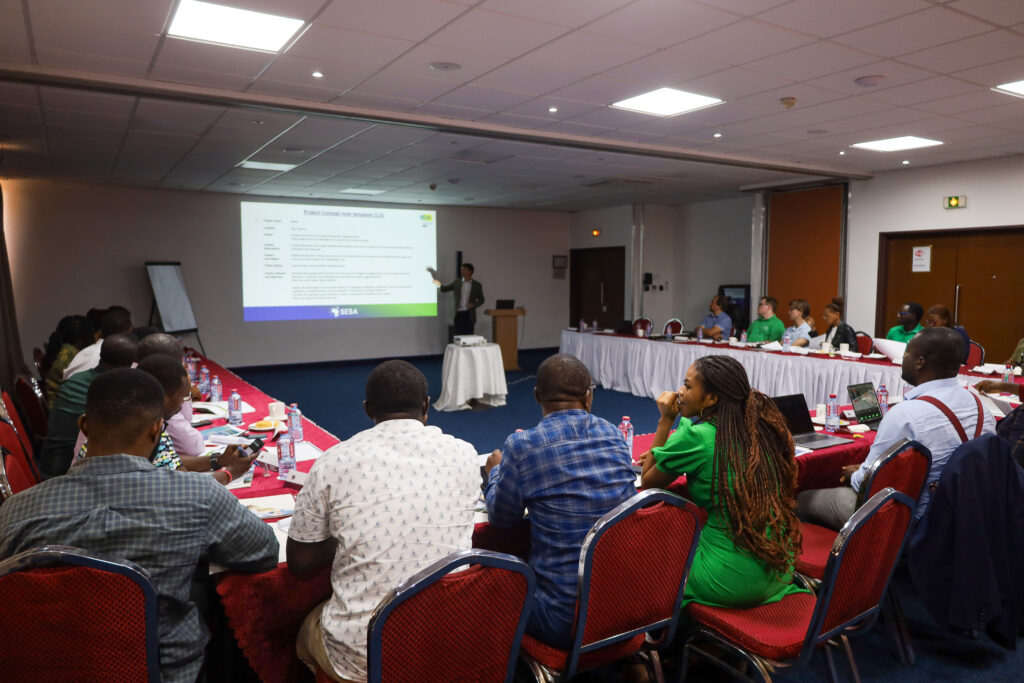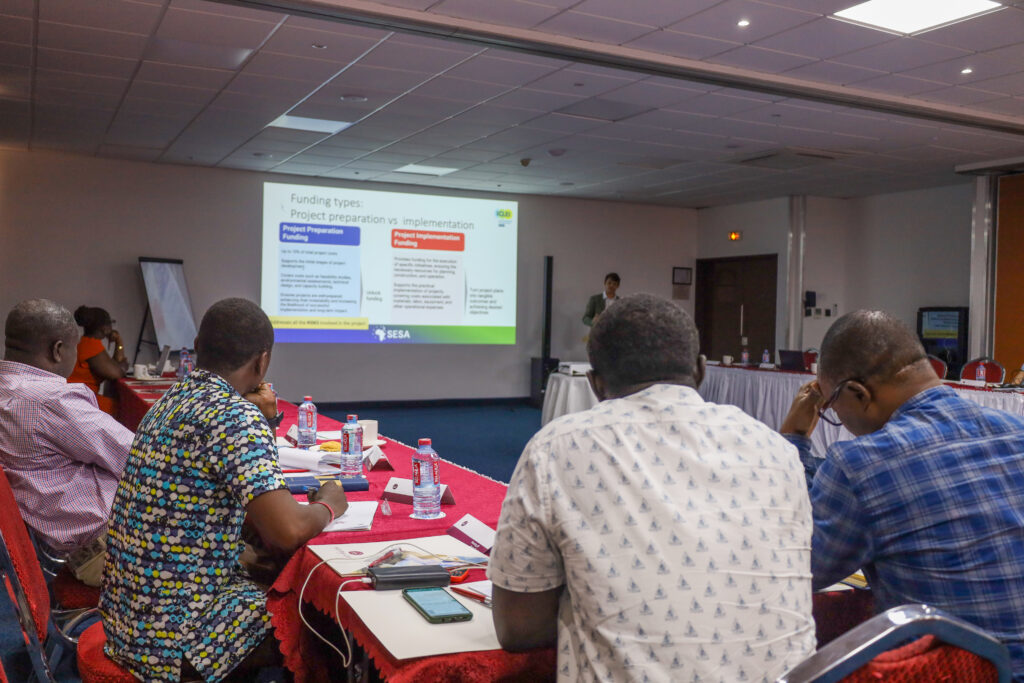10 November 2023
Advancing climate finance and project development in Ghana



Africa, with its abundant natural resources, stands poised to take the global lead in renewable energy adoption. Technological advancements in the energy sector have paved the way for locally-led projects to be developed at an affordable rate, providing clean energy access to citizens across the continent. Nevertheless, access to finance for sustainable energy projects remains a significant barrier for small to medium enterprises (SMEs) and sub-national governments.
ICLEI Africa through the Smart Energy Solutions for Africa (SESA) project’s regional event in Ghana, organised a climate finance workshop for municipal assemblies and SMEs in Accra on 10 October. The primary objective of this training was to offer technical support for project development, taking a ‘learn by doing’ approach. It also aimed to introduce potential funding mechanisms to participants. central to the workshop was the project development lifecycle, where participants took the initial step of developing project concepts. They delved into potential funding sources and operational models for each project, sparking engaging discussions.
The workshop drew a diverse audience, including officials from municipal assemblies, national government representatives, SMEs, and private sector industry players. This diversity ensured robust discussions and enabled peer-to-peer learning. Notably, key themes included public-private partnerships and project finance structures, highlighting the tremendous potential for clean energy technologies in Ghana.

One of the workshop’s remarkable outcomes was the collaborative spirit it fostered among participating municipal assemblies. They joined forces to co-develop projects during the workshop, pooling their resources and expertise. For instance, the Ashaiman and Ga North Municipal Assembly identified an opportunity to address their current waste management challenges by conceptualising a waste-to-energy facility that could serve both jurisdictions.
The workshop was not the only highlight of SESA’s regional event. The program also included a policy dialogue, sessions on business modelling for SMEs, site visits to SESA’s clean cooking and solar PV pilot projects and additional capacity building sessions. These initiatives collectively aim to accelerate Ghana’s journey toward a sustainable and clean energy future.
With the collective commitment of local governments, SMEs, and the private sector, Ghana is well on its way to unlocking the immense potential of renewable energy, reducing its carbon footprint, and ensuring a brighter, cleaner future for its citizens.



